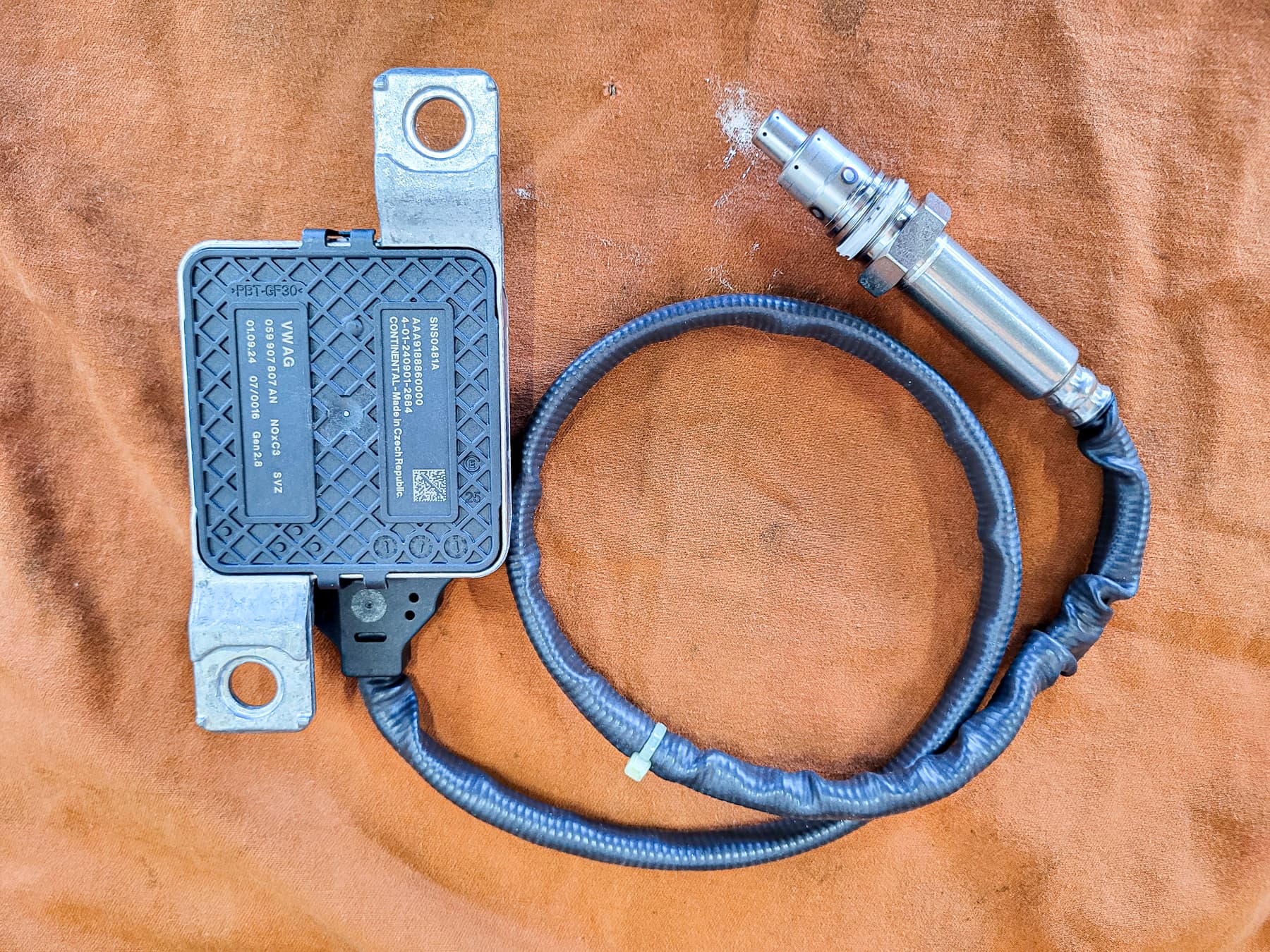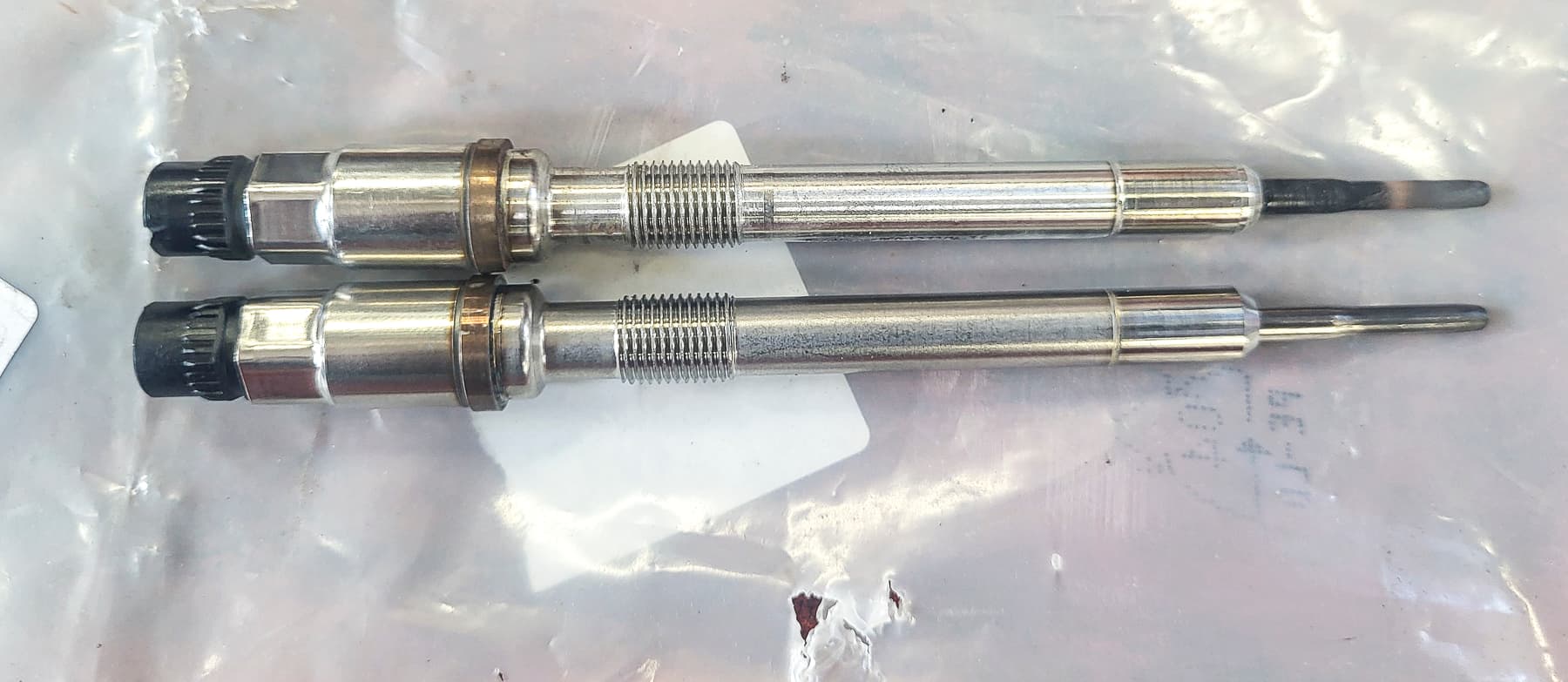Mark: Hi, it's Mark Bossert. I'm here with Bernie Pawlik, Pawlik Automotive in Vancouver, BC Canada, Vancouver's best auto service experience. We're talking cars. How you doing, Bernie?
Bernie: Doing very well.
Mark: So today's guest is a 2014 Audi Q7 TDI. Oh, oh... TDI. What was going on with this vehicle?
Bernie: So the vehicle came to our shop with a critical warning message on the dash, that the owner had 800 kilometres to repair the vehicle or it wouldn't start.
Mark: Wow. So that seems kind of dire. Is this common?
Bernie: Yeah, it is. Yeah. I mean, we see a few cars that have that message. Most diesels, I say modern diesels, anything built in probably last 10 to 15 years will have warnings where if you don't service the emission equipment, if something's wrong with it, the vehicle will not start until it's fixed. So we get vehicles like that from time to time.
Mark: And this is part of the whole trying to protect our environment, keep the air a little bit cleaner because diesels burning old dinosaur bones is pretty dirty. Is that correct?
Bernie: Yeah, it is. I think with diesels it's not just whatever the regular pollutants you have from gasoline, there's fine particulate matter. It gets deep in your lungs, causes cancer. It's not good stuff.
Mark: PM 2.5. Yes. It's also a problem with forest fires. Here's our guest. Audi Q7. Still looks in great shape.

Bernie: Yeah, it's fantastic. I mean, it looks like a brand new vehicle. Really good shape.
Mark: And let's see if we can find what the issue was here. What's this?

Bernie: So this is a NOx sensor. So of course when you have this warning on, there's something wrong with the emission system. So our task is to do some diagnostics. What we came up with as the main culprit to the issue, there were several codes stored in the vehicle computer. The main issue we found was this NOx sensor here which needed to be replaced.
So this is the part, it's very expensive. Basically it's kinda like an oxygen sensor you'd find in most gasoline vehicles. But this one senses NOx emission and it wasn't operating properly. You can see, it's not just the sensor that plugs into the vehicle harness, but it actually has a little computer module of its own, which then plugs into the vehicle harness. So this is typical of pretty well any modern diesel engine. Sometimes I'll have two or three of these types of sensors.
Mark: What is NOx?
Bernie: Yeah. It's oxides of nitrogen, which is a class of pollutants that are foreign when you burn hydrocarbons in a combustion engine. It's basically nitrogen in the air mixes with the oxygen and diesels particularly are very high at creating, an actual diesel engine, even though some of them are sooty, are actually quite clean compared to a gasoline engine say with no emission equipment. Except the NOx emissions are very high because of the high combustion temperatures and pressures.
Mark: So, science, chemicals and shit.
Bernie: Yeah, science, chemicals and shit. Yeah, exactly. Yeah. This is the backside view of the sensor.

Mark: So how difficult a repair was this? You mentioned it was a complicated or expensive repair.
Bernie: Well, it's expensive. I mean, the part is not that difficult to remove. There's usually a couple of covers where they hide them, but it screws into the exhaust system. Some of these don't come out easily and they can be a real pain. I guess the heat of the diesel exhaust, sometimes it almost welds the sensor in. If you look to the actual sensor Mark, I know you have pointers there, you can point out, but if you look right there, there's a threaded section that threads into the exhaust system.
Usually in a lot of cars for instance, they'll come out quite easily, but some diesels, they're very difficult to remove. It almost destroys the threads in the exhaust system at the same time. So that can add complication. This one was not, it's basically you put it in plug and play, then there's some reprogramming to do.
Mark: What kind of mileage did this vehicle have?
Bernie: Well, I don't have that right in front of me. I think it was like a hundred thousand. It wasn't, it wasn't a crazy amount, it wasn't too high.
Mark: So not the best choice for a diesel vehicle.
Bernie: Yeah. Truly. Yeah, I might be wrong on that, but I mean, based on the condition of the vehicle, it was in nice shape. So I don't think it had been driven too much.
Mark: So you went to reprogram it, is that where you discovered this next item on our list here?
Bernie: No. What happened is, we reprogrammed it and there's settings in the vehicle where once everything is working properly, we reprogrammed it and then we're able to turn the warning message off. So the vehicle was now able to start. Until the next problem, well, until the next emission problem.
Mark: So what are these fancy chopsticks here?

Bernie: These are glow plugs. We of course always road test a vehicle after repair and after road testing it, the check engine light came back on and there was a code for excessive cylinder pressure. And this is a very interesting code. There's actually a pressure sensor that measures the pressure inside the cylinder of the engine, but it only has one sensor on this vehicle. It's a V6 engine. It has one sensor that's a number two cylinder, and it actually does it through the glow plug.
Why they choose that particular piece of information to send [00:05:00] to the computer? I'm not really sure because there's not much you can do about cylinder pressure. It's just there. But anyways, there was a code for it did a little further diagnostic, but the most common cause of that issue is a defective sensor, and that's part of the glow plug. So we replaced it. The old one is on the top. You can kinda see the burnt tip. New one on the bottom. And this is different. The other five glow plugs in the vehicle are much slimmer. They still have the same threads and thread fitting, but that sort of fat tip on the left side is not there. It just says one little wire connector. So anyways, to make a long story short, replaced it, road, tested it. No more check engine light.
Mark: Vehicle's running great. Customer's happy. Can get another couple hundred thousand kilometres out of this vehicle if they choose.
Bernie: Yeah, exactly. Yeah. I mean, it looks like it's got a lot of good life left in it.
Mark: And how are Audi TDIs for reliability?
Bernie: Well, they're the same as a Volkswagen. They're pretty good. I think as far as the Euro diesels, I think they're the more reliable ones of the bunch, for sure. Mercedes, we've talked a lot about them in the past about the issues they have. We haven't talked a lot about BMWs, yeah, the BMWs are my least favourite. They're just, yeah, we don't need to get into 'em. The Volkswagens, in spite of the Diesel Gate and all the other crap, they've actually built their engines, I think are the best built of the Euros.
Mark: Other than their soot problem, which is endemic to diesels.
Bernie: Yeah. That's just naturally diesel. And those were all corporate, bad choices, let's say.
Mark: If you're looking for service for your TDI or your Audi in Vancouver, the guys to see you are at Pawlik Automotive. You can reach them online at pawlikautomotive.com. You can book your appointment right there. They'll get in touch with you. They'll get ready for your appointment, or you can call them at (604) 327-7112 to book your appointment. Listen, you gotta book ahead. They're always busy. Pawlik Automotive in Vancouver, BC Canada. Thanks so much for watching and listening. Thanks, Bernie.
Bernie: Thank you, Mark. Thanks for watching.

